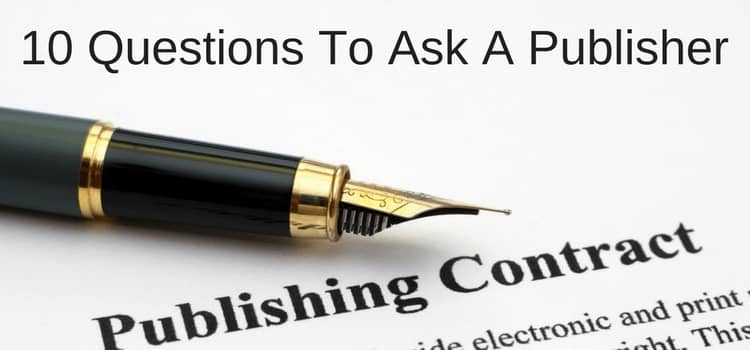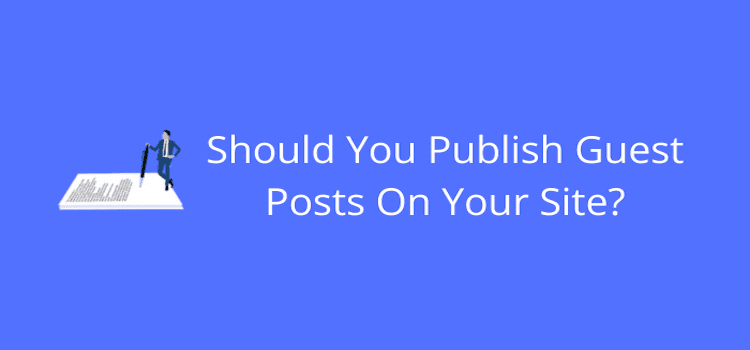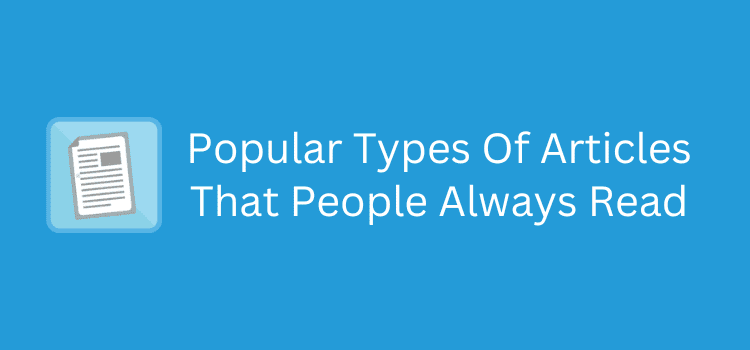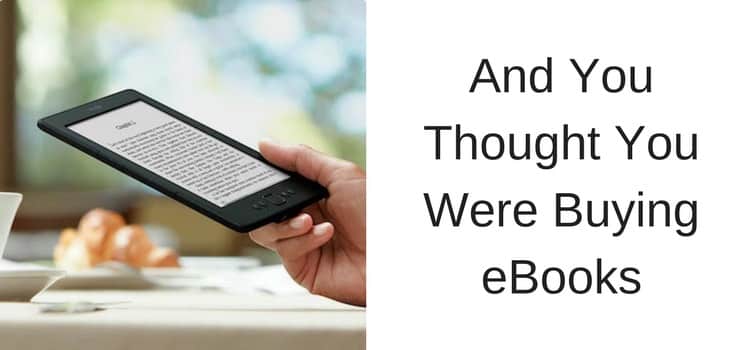
After you write a book, you want to publish it. But always be ready to ask any publisher lots of questions. Signing up with a publisher is never a quick and easy decision.
The publishing industry has changed dramatically in recent years. New authors can choose from self-publishing services, assisted publishing, small press publishers, hybrid publishers, as well as traditional publishers.
Naturally, new publishers and service providers are harnessing technology and the growth in electronic book publishing to create new businesses.
However, due to so many options, authors need to be careful when making their publishing decisions.
New publishers
Over the last few years, independent publishers have been one of the biggest growth areas due to the availability and ease of online publishing.
Many new authors logically wonder if they should use a publisher or self-publish.
For many reasons, the services of a publisher can offer some attractive benefits to an author.
This is especially so for those authors new to writing and publishing.
Self-publishing is free and relatively easy for authors with very good computer and Internet skills.
However, a reliable and honest publisher is an option for those authors with limited technical abilities or who don’t wish to learn how to self-publish.
In this case, small press publishers are worth considering.
An author wants to spend more time writing than fighting with technology and wasting hours on social media.
This may be a very good reason to consider engaging a reputable publisher.
But remember, it’s an important decision. Take your time and consider all your options.
Independent publishers fall into two main categories
The first group are publishers that offer assisted self-publishing.
It is a service that usually offers a one-off fee to get a book correctly formatted and a cover designed.
Perhaps also a well-written book description.
Then, it will publish your book on retail platforms such as Amazon KDP and Draft2Digital.
The second is a full-service publisher.
It will manage publishing, marketing, and sales and then make its money from a percentage of your book sales royalties.
This type of publisher offers a more traditional route.
However, there are also some who could be classed as hybrid publishers.
These offer mix-and-match publishing services.
However, independent publishing should not be confused with traditional publishing.
Traditional publishing involves finding and signing with a literary agent.
Your literary agent will work with you on your book proposal for a publishing contract with one of the major publishing houses.
You should research the best publishing companies for your needs.
But whichever option you decide to take, never rush into making a decision.
10 Questions to ask a publisher BEFORE you sign

As with any service provider, there are both good and bad publishers and publishing services.
Make sure you do your homework and research before entering into a publishing agreement or book contract.
Also, ensure that you understand your publishing options and choices.
You should check a potential publisher’s website and examine the publishing options.
You can also use Google or Bing to find any reviews related to the publisher.
There are hundreds of publishers now offering to publish books, so you should always check a book publisher and proceed with caution.
If you are considering using the services of an independent publishing company, here are the ten most important questions to ask a publisher.
You definitely need to ask these questions and get answers you are comfortable with before signing a contract.
1. Do I retain all the rights to my book?
There should be no reason whatsoever for an assisting publisher to ask for the rights to your book.
However, small press publishers may wish to retain the rights to your book.
Unless the publisher offers you a traditional publishing deal with an advance, never sign away the rights to your book without careful thought.
2. How do I terminate our publishing agreement?
So many problems can occur in any contractual arrangement.
When considering a publishing agreement, never sign up or agree without knowing how the contract can be terminated.
A related question is what happens if the publisher goes out of business.
If the terms of termination involve losing the rights to your book, do not sign.
3. What is the total cost?
This is a vital question for assisted self-publishing and vanity publishers.
Make sure you get a detailed account in writing of what services the publisher will perform.
Also, ask for the prices for each service.
Make sure it is a fixed price and that you will not be charged for ongoing extras at a later date.
4. What services will you provide as my publisher?
Will the publisher edit, copy edit, or at least proofread your book before formatting and publishing it?
Is there a charge for these services?
Or are you responsible for undertaking the expense of preparing the final manuscript?
5. What royalty will I receive?
What will my royalty rate be, and how often or when will I get paid?
A full-service publisher will take a percentage of your book sales royalty. You need to be sure of this amount.
Royalty rates vary with every online retailer, from approximately 35% to 70%.
Ask for a detailed explanation of how much the publisher will take in each case.
Most importantly, ask how and when your royalties will be paid.
6. Will I get book sales reports?
If your publisher manages your retailer accounts to sell your book, you will probably not have access to this information.
Therefore, you will have to rely on your publisher to supply you with sales and royalty reports on a regular basis.
You should receive these on at least a quarterly basis.
7. Who will promote your book?
A publisher of any worth should have a solid marketing platform, preferably one with a sizeable mailing list.
Of course, a publisher will expect you to do a lot of book promotion for your book.
But be sure to ask the publisher how they intend to market your book and maximize its sales opportunities.
8. How long has the publisher been in business?
An obvious question.
You should only consider a company with many years of book publishing experience.
Most publishers manage many authors and titles.
However, you may find a new publisher that is new and has only a small stable.
This may not be a bad thing, as you might receive more attention.
But you should be extra careful in your considerations.
This is the best way to determine if a publisher is worth considering.
If the publisher refuses to give you referrals, beware.
Summary
Depending on what you expect or would like from an independent publisher, there are many more questions you could and should ask a publisher.
But make sure you ask all your questions well before making any commitments or signing a publishing contract.
You should also be careful to tell the difference between an independent publisher and a vanity press publisher.
There are many high-pressure vanity book publishers nowadays.
You’ve heard of some like AuthorHouse, Author Solutions, and other publishing sharks, I’m sure.
If you receive an unsolicited approach to publish your book from anyone or any company you don’t know, be extremely careful.
You can check the reputation of many publishers and service providers on the Alliance of Independent Authors (ALLi) website.
The Best and Worst Self-Publishing Services list is extensive and regularly updated, with all listed services vetted by Alli.
You should check the list to see if a publisher has a red watchdog advisory notice or caution status.
Related reading: I Want Someone To Help Me Publish My Book
Share This Article



Does someone (new author) need to hire an “Acquisition Agent” to work with?
What advice would you give to someone new in the book writing business who, via book publishing virtual webinar for those in academia, an acquisition and a literary agent from 2 different publishing companies contacted the individual to submit the Book manuscript. This has led to both publishing companies accepting the manuscript for publishing and a contract presented.
Admitted the 2 publishers are not big name, but are their offers worth considering after some due diligence research about both publishing companies? Thanks.
You are very fortunate indeed to receive two publishing offers. All I can advise is to check the contracts carefully and perhaps consult a lawyer to be sure. Then you can make your decision based on the best advice you can get.
I am having trouble removing a self-published book for sale on Amazon because the self-publishing company is not defunct and out of business. Although I wrote the book, the (now defunct) company placed it for sale on Amazon 20 years ago. Of course, it is a completely useless use of space by Amazon because when trying to order the book, one gets an “out of print” message. In reaching out to Amazon to remove the book, I am told the publisher will have to remove it. The publisher, a small independent located in Atlanta, is no longer in operation. Further, I have no idea how to trace the old publishing company, so, essentially, the book cannot be removed. Any suggestions would be appreciated.
Hi Derek, Your first point about rights is confusing. A contract with a traditional publisher is all about how many rights they are obtaining. An author has to sign at least English (and usually Commonwealth) rights so a novel can be published in that territory. With short stories, the rights tend to revert to the author after a given time, say a year. There are some advantages to signing world rights when an author doesn’t have an agent. The Big Five often have vast teams who are able to sell those rights for an un-agented author, and some of them release works simultaneously into other territories, namely the US. Retaining translation and dramatisation rights are definitely things to consider before signing, but a contract can contain a clause that says rights revert to the author after a certain time if they have not been sold. Without an agent, it is very difficult for an author to sell their rights.
Given that the big five publishing houses are now insisting that their stable of writers not only write the book, but also do all of the promotion Derek, to find a small press willing to do everything but write the book, must be a pipe dream surely? As for paying for the priviledge – forget it! If you do come across a small press that doesn’t charge, and is totally author friendly, let me know. ;)
If by some odd chance I do, Jack, I’ll let you know! But my main point was that many authors jump into bed with a publisher without doing their homework, or at least asking a few questions upfront. On my book promotion site, I have been notified to delete quite a number of books due to author-publisher disputes, so disagreements and misunderstandings are very common. Sometimes the dream and excitement of getting published gets in the way of asking some questions first, and then making a reasoned business decision.